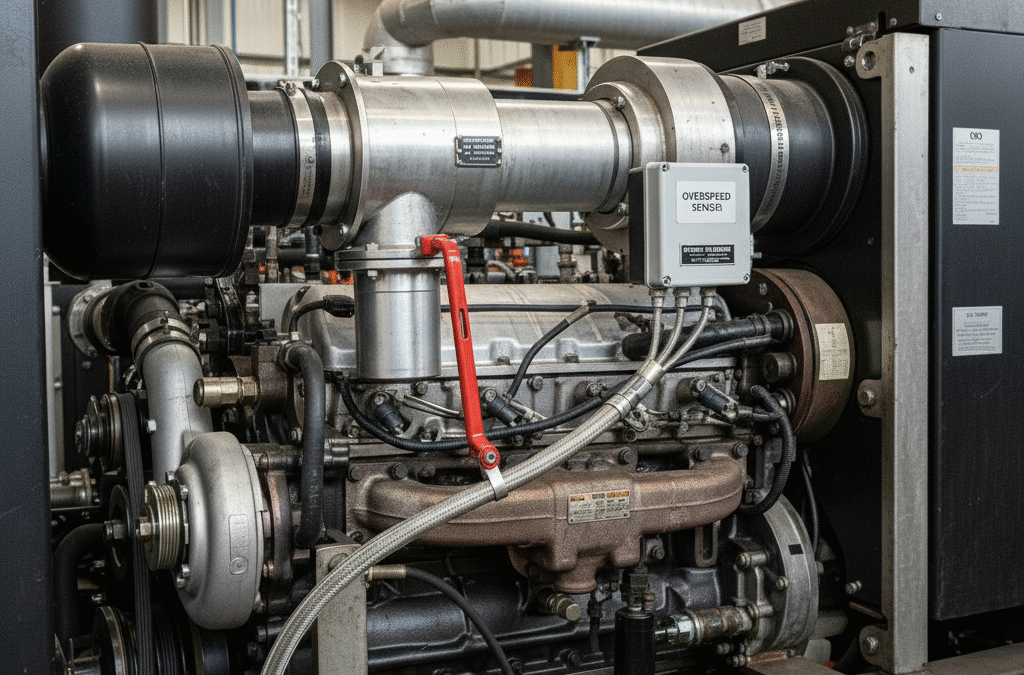When it comes to diesel engine compliance, there’s a dangerous belief that “meeting the standard” means being safe. On paper, your positive air shut off (PASS) system might check every regulatory box, but in practice, that doesn’t mean it will protect your people or your assets when it counts. Real safety isn’t about minimums. It’s about reliability, quality, and innovation that go beyond compliance.
At Headwind Solutions, we’ve seen the cost of the “good enough” mindset. A compliant system may pass inspection, but when exposed to harsh conditions or emergency situations, it can fail fast. In this blog, we unpack why meeting the bare minimum for PASS compliance isn’t protection, how new legislation is reshaping expectations, and what proactive PAS safety looks like.
Are Your PASS Systems Built for Safety or Compliance?
Every worksite that runs diesel engines knows compliance is required, but few stop to ask if compliance is enough. Many PASS systems on the market today are designed to meet regulations, not to perform under pressure.
A PASS system that is compliant on paper can still fail when it is needed most. If your system is not built with quality sensors, rigorous testing, and a fail-safe design, one small leak of natural gas or propane can cause a diesel runaway. That runaway becomes an uncontrollable event that puts both lives and assets at risk.
The difference comes down to how the system is made and tested. Many low-cost systems rely on imported components that are not built for the extreme temperature changes, humidity, and dust that define North American job sites. Headwind Solutions takes the opposite approach. Every ShockerPASS system is designed, manufactured, and tested here in North America using premium materials and field-proven sensors. Each unit goes through full-cycle testing to ensure it will perform in real conditions, not just in the lab. Competitors often stop at compliance. We build for control, consistency, and confidence.
A compliant label will not stop an explosion. A proven system will.
How Are Changes in Safety Legislation Redefining Compliance for PASS Systems
Recent updates in safety legislation, such as Transport Canada’s B620 Regulation Checks, are raising the bar for what “safe” truly means. Regulators are no longer satisfied with basic compliance. They now expect systems that demonstrate real-world performance, not just paperwork approval.
This shift means companies must start viewing compliance as the starting point, not the finish line. The organizations leading the way are those investing in advanced safety solutions that predict, detect, and prevent incidents before they happen.
At Headwind Solutions, that has been our standard from the beginning. ShockerPASS does more than meet PASS compliance; it exceeds it. Before a new component or product leaves our facility, we spend months testing it to ensure its durability and longevity. Our ShockerPASS systems are designed to be repairable, allowing each component of the shut off valve to be replaced or repaired to extend the product’s use.
If your safety plan is based on yesterday’s standards, it is time to rethink compliance. Talk to us about upgrading to proactive protection with the ShockerPASS.
What Does the Next Level of Proactive Safety Look Like for PASS?
Proactive safety means acting before the danger ever starts. ShockerPASS delivers exactly that! It automatically detects high-revving runaway events and shuts off the engine’s air supply within seconds, protecting workers, equipment, and productivity.
Unlike generic PASS products, ShockerPASS is precision-tested for quality, designed to handle the toughest environments, and backed by the industry’s only full two-year warranty with no hourly or mileage limits. It is engineered for performance, not just compliance.
True peace of mind comes from knowing your system will perform every single time.
Move Beyond Compliance with the ShockerPASS
See how ShockerPASS helps you move from compliance to complete confidence. Contact Headwind Solutions today for a customized assessment and find out how proactive safety can give you complete peace of mind.

